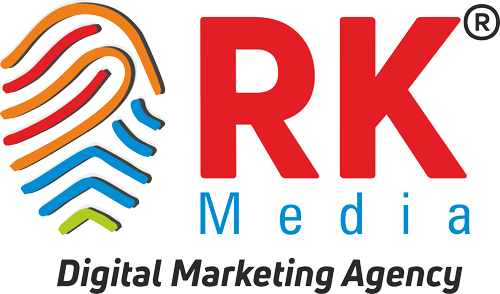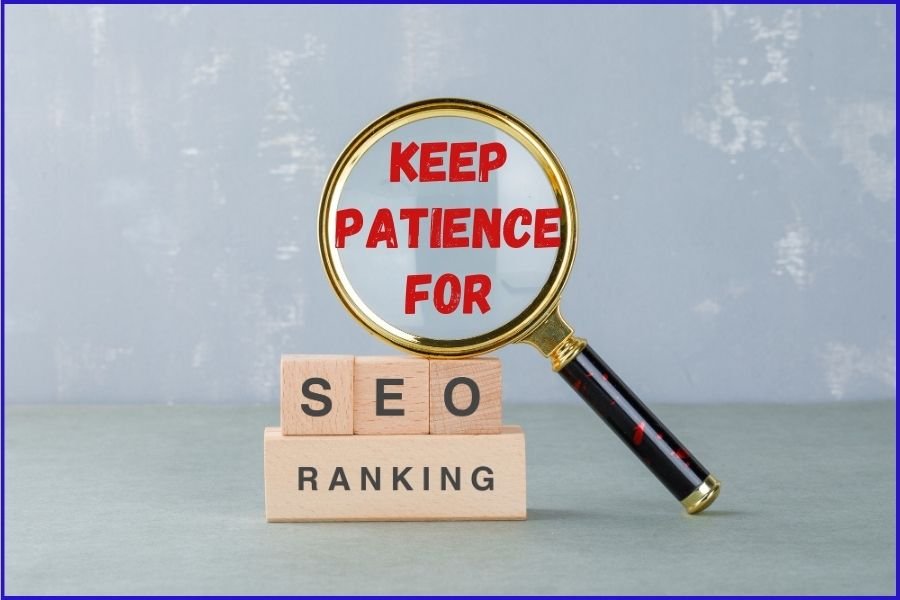Revolutionizing Real Estate: Unveiling Solutions to Social Media Marketing Challenges
Introduction
The advent of social media has transformed the landscape of various industries, and real estate is no exception. In this era of digitization, where connectivity and communication thrive online, leveraging social media has become imperative for businesses to stay competitive. This article delves into the realm of revolutionizing real estate through innovative solutions aimed at overcoming challenges in social media marketing. By exploring the multifaceted aspects of this intersection, we aim to shed light on how the real estate sector can harness the power of social media to enhance marketing strategies and overall success.
Brief overview of the significance of Social Media Marketing (SMM) in Real Estate
Social Media Marketing (SMM) has emerged as a game-changer for the real estate industry, offering unprecedented opportunities for engagement, visibility, and brand building. The significance of SMM in real estate lies in its ability to reach a vast and diverse audience, foster meaningful connections, and showcase properties in a visually compelling manner. Social media platforms serve as dynamic spaces where real estate professionals can not only market listings but also establish a distinctive brand identity.
In the context of the real estate market, social media provides an unparalleled platform for property promotion, community engagement, and relationship building. Prospective buyers and sellers actively use social media channels to research, explore, and make informed decisions about real estate transactions. As a result, a robust social media presence is now an integral component of successful real estate marketing strategies.
Moreover, the interactive nature of social media enables real estate professionals to create targeted content, engage in two-way communication, and address the specific needs and concerns of their audience. By strategically utilizing social media platforms, real estate businesses can amplify their reach, drive traffic to their websites, and ultimately convert leads into clients.
Importance of addressing pain points in the industry
In the dynamic landscape of the real estate industry, addressing pain points becomes crucial for sustained growth and success. The term pain points refers to the challenges and obstacles that professionals encounter in their daily operations. In the context of real estate, these challenges can range from cumbersome administrative processes to the adoption of modern technologies. The importance of addressing these pain points lies in their potential to impede progress, hinder customer satisfaction, and limit the industry’s overall efficiency.
For real estate professionals, identifying and resolving pain points is a strategic move towards enhancing customer experience, increasing operational efficiency, and staying competitive. By systematically addressing pain points, the industry can create a more conducive environment for growth, innovation, and improved client relationships. In this era of digital transformation, a particular pain point that demands immediate attention is the challenges faced in social media marketing.
Pain Points in Real Estate Social Media Marketing
The integration of social media into real estate marketing strategies has become imperative for reaching a wider audience and staying connected with potential clients. However, this avenue is not without its challenges. Understanding and mitigating these pain points is crucial for real estate professionals looking to leverage the power of social media effectively.
1. Content Creation and Engagement: Creating engaging and relevant content for a diverse audience on social media platforms poses a significant challenge for real estate marketers. From developing visually appealing property showcases to crafting compelling narratives, the pressure to stand out in a crowded digital space is immense.
2. Compliance and Regulation: Real estate is subject to various legal and regulatory frameworks. Navigating these complexities within the realms of social media marketing requires a delicate balance between showcasing properties effectively and adhering to industry regulations.
3. Building Authentic Connections: Establishing trust and authenticity in the digital realm is a persistent challenge. Real estate transactions are deeply personal, and building genuine connections through social media demands a strategic approach to communication, engagement, and transparency.
4. Measurement and Analytics: Quantifying the success of social media marketing efforts is often challenging in real estate. Determining the return on investment, understanding audience behavior, and optimizing strategies based on data analytics are crucial for sustained success in the digital landscape.
Solutions to Address Pain Points
In the realm of real estate, navigating the dynamic landscape of social media marketing presents unique challenges. To revolutionize the industry, it is imperative to identify and address the pain points inherent in this space. One primary concern is the struggle to maintain a consistent online presence amidst the plethora of platforms available. A comprehensive solution involves leveraging cutting-edge tools and technologies to streamline content creation and dissemination. Automated scheduling, AI-driven analytics, and personalized engagement strategies can alleviate the burden, ensuring a seamless and efficient social media marketing campaign.
Additionally, the issue of audience trust and credibility is a common stumbling block. Implementing transparent communication strategies, showcasing authentic testimonials, and utilizing user-generated content can build trust among potential clients. By addressing these pain points head-on, real estate professionals can lay the foundation for a robust social media marketing strategy that resonates with their target audience.
Targeted Audience Engagement
A pivotal aspect of revolutionizing real estate through social media lies in the ability to engage the right audience. Rather than casting a wide net, precision is key. Utilizing advanced demographic and psychographic data, real estate marketers can tailor their content to specific audience segments. This targeted approach ensures that the content resonates with the intended demographic, fostering a deeper connection and increasing the likelihood of conversion.
To optimize targeted engagement, real estate professionals can leverage social media advertising tools to reach potential clients based on their location, interests, and online behavior. Crafting compelling and visually appealing content that aligns with the preferences of the target audience further enhances the impact of the social media marketing campaign. By focusing on precision and relevance, real estate professionals can redefine their approach to audience engagement and maximize the effectiveness of their social media efforts.
Content Strategy and Planning
A successful revolution in real estate through social media hinges on a well-defined content strategy and meticulous planning. Consistency and relevance are paramount in capturing the attention of potential clients. Start by conducting thorough market research to understand current trends, preferences, and the type of content that resonates with the target audience.
Create a content calendar that aligns with the various stages of the real estate buying or selling journey. Incorporate a mix of informative articles, visually appealing images, and engaging videos to cater to diverse audience preferences. Additionally, consider the use of emerging content formats, such as virtual tours and live sessions, to provide a unique and immersive experience.
Benefits of Social Media Marketing in Real Estate
Social Media Marketing (SMM) has emerged as a powerful tool in revolutionizing the real estate industry, offering numerous benefits that have the potential to transform the way properties are marketed and sold. Here’s a detailed exploration of the advantages of employing social media strategies in the real estate sector:
1. Enhanced Visibility and Reach: Social media platforms provide an extensive reach, enabling real estate professionals to showcase their properties to a vast and diverse audience. By leveraging popular platforms like Facebook, Instagram, and Twitter, real estate listings can gain visibility beyond traditional marketing channels.
2. Targeted Advertising: One of the key benefits of social media marketing is the ability to target specific demographics and interests. Real estate professionals can tailor their advertising campaigns to reach potential buyers based on criteria such as location, age, income, and interests. This targeted approach ensures that marketing efforts are directed towards individuals most likely to be interested in a particular property.
3. Engaging Content and Storytelling: Social media platforms facilitate the creation and sharing of engaging content. Real estate agents can utilize visually appealing images, virtual tours, and videos to tell the story of a property. This storytelling approach helps build an emotional connection with potential buyers, making them more likely to consider a property seriously.
4. Establishing Credibility and Trust: Social media provides a platform for real estate professionals to showcase their expertise and build credibility. Regularly sharing valuable insights, market trends, and success stories can position an agent or agency as an authority in the real estate domain, fostering trust with the audience.
Conclusion
In conclusion, the journey through the realm of Revolutionizing Real Estate: Unveiling Solutions to Social Media Marketing Challenges has been an illuminating exploration into the transformative power of social media in the real estate landscape. As we dissected the multifaceted challenges faced by industry professionals, it became evident that the solutions lie in leveraging the potential of social media platforms. The strategic intersection of real estate and social media is poised to redefine the industry’s marketing dynamics, unlocking new avenues for engagement, visibility, and client acquisition.
Amidst the myriad solutions presented, one standout player emerges RK Media Digital Marketing Agency. This agency not only comprehends the intricacies of the real estate sector but also excels in crafting tailored social media strategies that address the specific challenges faced by industry stakeholders. Their innovative approaches, driven by a profound understanding of social media algorithms, consumer behavior, and market trends, position them as trailblazers in revolutionizing real estate marketing.
RK Media’s commitment to staying at the forefront of digital marketing trends ensures that their clients benefit from cutting-edge solutions. By seamlessly integrating social media into the real estate marketing playbook, RK Media enables clients to navigate the evolving landscape with finesse, fostering brand awareness and driving conversions.
In essence, as the real estate industry undergoes a paradigm shift propelled by the force of social media, RK Media Digital Marketing Agency stands as a beacon of expertise, guiding businesses through the intricate terrain of online marketing. Their visionary strategies not only address the challenges outlined but also pave the way for a future where social media becomes the cornerstone of real estate success. With RK Media at the helm, the marriage of real estate and social media is poised to redefine industry standards and set the stage for a new era of dynamic and effective digital marketing in the real estate sector.
FAQs
Q1. Why is Social Media Marketing (SMM) significant in the real estate industry?
Answer: Social Media Marketing is crucial in real estate for its ability to reach a vast audience, foster connections, and showcase properties visually. It facilitates community engagement, enhances brand identity, and has become integral to successful marketing strategies in the digital era.
Q2. What are the pain points in Real Estate Social Media Marketing?
Answer: Real Estate Social Media Marketing faces challenges such as content creation and engagement, compliance with regulations, building authentic connections, and measuring success through analytics. Addressing these pain points is essential for effective social media strategies.
Q3. How can real estate professionals overcome the challenge of building trust and authenticity on social media?
Answer: Building trust involves transparent communication, showcasing authentic testimonials, and utilizing user-generated content. These strategies contribute to establishing genuine connections with potential clients in the digital realm.
Q4. What role does targeted audience engagement play in revolutionizing real estate through social media?
Answer: Precision is key in targeted audience engagement. By leveraging advanced demographic and psychographic data, real estate marketers can tailor content to specific segments, increasing the likelihood of conversion and fostering deeper connections.
Q5. How can social media benefit the real estate industry, and what advantages does it offer?
Answer: Social Media Marketing provides enhanced visibility and reach, targeted advertising, engaging content and storytelling opportunities, and a platform for establishing credibility and trust. These benefits have the potential to transform the way properties are marketed and sold in the real estate sector.
Image Reference: Freepik
Disclaimer: All trademarks, logos, and brand names are the property of their respective owners. All company, product, and service names used in this website are for identification purposes only. Use of these names, trademarks, and brands does not imply endorsement.
















